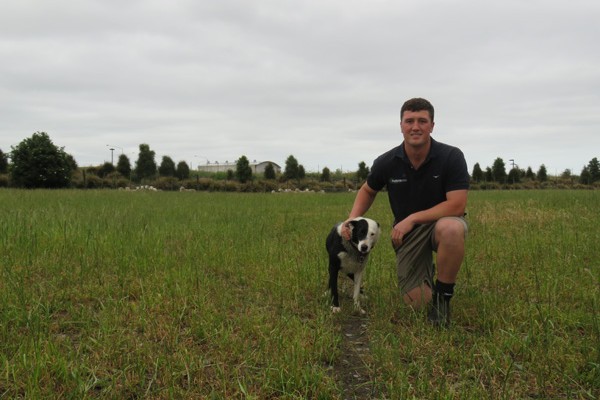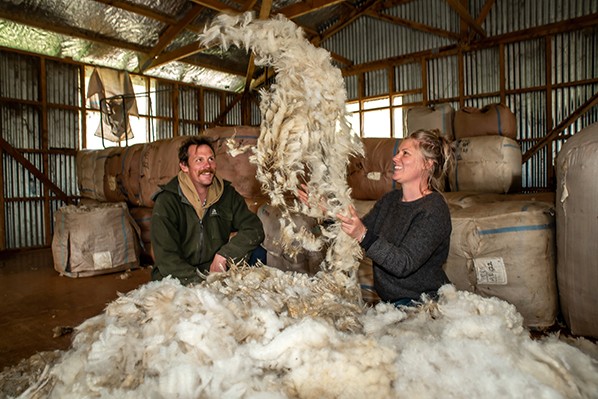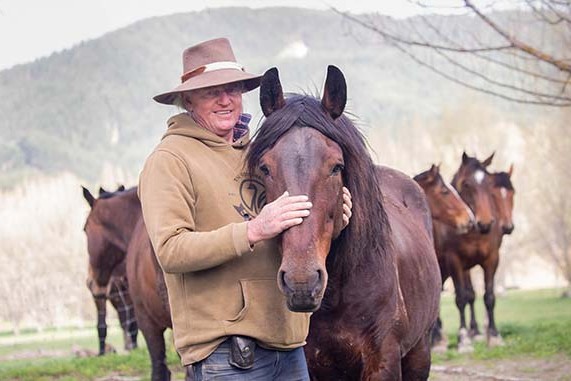City kid’s farming dream
Angus Grant’s path into farming has been quite different compared to a country kid. The 21-year-old, who grew up in Christchurch, has wanted to be a farmer since he was barely out of nappies. Words By Annabelle Latz

All you have to do is ask, and someone will teach you a few things about farming. That is the advice of 21-year-old Angus Grant, who grew up in Christchurch and has wanted to be a farmer since he was barely out of nappies.
His path into farming has been quite different compared to a country kid. Seeing financial opportunity in hens, every Friday afternoon back in the primary school days was spent with cartons of eggs dangling from his handlebar as he biked the neighbourhood of St Albans making deliveries.
“I was buying my own feed and dad picked it up for me. Mum is a pretty good people person, and taught me a lot about looking after customers.”
Angus’s dad was a builder and converted his sister’s playhouse into a chicken coop. He can’t remember ever not wanting to be a farmer, and his egg money was for one purpose: to buy sheep, and one day buy a farm.
Over the years he’s grazed sheep on bare residential blocks and in the earthquake red zones scattered throughout the city, pedalling some serious kilometres on his bike.
“In the early days I’d be at school and get a call saying my sheep had broken out and were on the road, so I’d have to go and sort that out. That always got a laugh from my classmates.”
Nowadays he grazes about 25 blocks around the city totalling about 100 hectares; one borders Christchurch Airport with aircraft of all sizes flying regularly overhead. Stock numbers have grown steadily since he got his driver’s licence – he clocks about 35,000km a year in his ute. Heading dog Moth, given by a friend Jim Burrows, enjoys the suburban farm dog life.
Angus was eight years-old when he had his first chat with Allan Findlay, a Southland farmer who owned a rental property next door.
“I just went over there, sat next to him and started talking about wanting to be a farmer.”
The gentleman embraced the enthusiasm, and the next few years saw Angus down in Southland’s Takitimu Mountains on his school holidays and whenever he got the chance, where he was taught the farming essentials like crutching sheep, moving stock and swinging a gate – all the things kids born on a farm learn naturally.
“Over the years a lot of farmers have given me their time, I’ve been extremely fortunate. Farmers love helping out young people and seeing someone who is keen to get started.”
Angus has always been really interested in genetics, breeding and bloodlines, and is always reading up on the topic.
In his early teens he came across an article on the Peters Genetics in Herriot, West Otago, and gave the family a ring.
“I just cold-called them, asked if they had any surplus ewes.”
Trevor Peters said he’d sell him 50 wet dry ewes, marking the first farm business transaction with the egg sale money. The ewes were grazed on a bare residential block two-doors down from his home.
He then bought 40 store lambs from North Canterbury’s Sam Chisnall, which he grazed in grazed in Christchurch’s northern suburb of Papanui, which his dad helped him fence up.
Trevor has since passed away, but Angus still has a lot to do with the family.
He’s grateful to have good quality rams and have access to good genetics.
Angus’s operation is mostly focused on trading stock, with Peters Genetics ewes making up Angus’s capital stock, which he buys as cull ewe lambs and crosses with Southdown and Dorset Down rams.
“I am very interested in breeding and ram selection is a highlight every year.”
Always trying to have his finger on the pulse, he buys whatever he thinks will create the best margin. For the value of a 20kg carcaseweight Romney Downs cross that he can grow out fast, he can buy a cull ewe hogget for the same or less.
“At the moment you have to be fickle with your money.”
This year he lambed 200 of his own ewes, bought 180 in-lamb ewes, and finished various lines during winter and summer. In total he has between 800 and 1000 lambs and ewes on the ground at once.
He focuses on break-feeding blocks of oats, rape and annual ryegrass, preferring to grow feed in the paddock rather than have to cover the costly practice of making baleage.
“For me, it’s more cost effective to break-feed oats.”
He always keeps a few bales on hand in case he gets caught short.
Angus has one more year at Lincoln University where he’s completing a Bachelor of Commerce majoring in professional accounting, and minoring in finance. Scholarships with Lincoln Future Leaders and Meat Industry Association have created a near debt-free degree.
This summer he’s completing an agri-business internship with Christchurch accountancy firm BDO, and considering chartered accountancy as a career path, well aware he’ll need significant funds to purchase a farm. He plans to head to England for a while to seek opportunities, the country he spent the first two years of his life and where his mum is from.
The list of learning curves is long. One stand out memory was the day the stock truck came to pick up his sheep and he didn’t know he had to crutch them first.
“But the driver was really good about it, he waited while I crutched them, I only had a few.”
At times he’s shorn his own sheep, but admitting he’s not the fastest or tidiest, he now gets them shorn by North Canterbury’s Dave Brooker who is one of his mentors. He talks regularly to his many mentors in the industry and is well aware that it is thanks to their generosity of time and advice that he has found his feet in the world of farming.
“I’m so lucky really, I’ve always had the passion, but I’ve had a lot of help too.”
He concedes farming is a profession where mistakes are inevitable, the aim is to not make them twice.
The increase of compliance and regulation in the agricultural sector does not put Angus off his dream, he said it’s important to have a balance of common sense and regulations, amidst the real current challenges of huge costs and low prices.
“It’s really important to stay optimistic. I am a long way off getting my own farm, but I know I will achieve it.”




